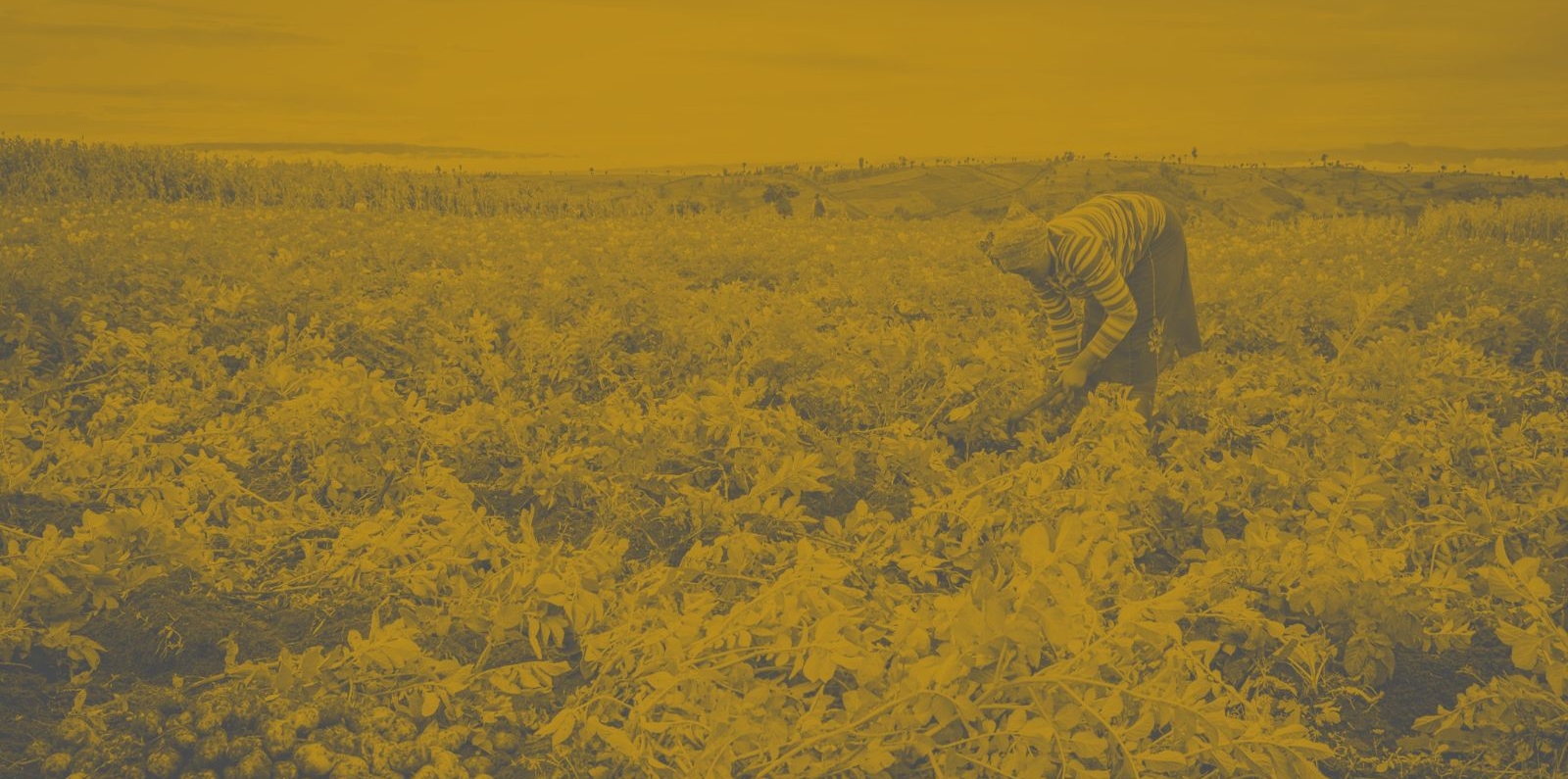The Global Agriculture and Food Security Program (GAFSP), a US$2 billion global financing platform dedicated to improving food and nutrition security worldwide, is supporting countries’ efforts to respond to the current global food security crisis and tackle overlapping crises, from climate change to the impacts of the global pandemic, and rising food, fuel, and energy prices. Working in partnership with the world’s leading development agencies, GAFSP will launch a new Call for Proposals in 2022 to provide grant financing to assist low-income countries and smallholder farmers, to mitigate the impacts of the current food security crisis while also supporting efforts to build resilient and sustainable food systems.
The world’s poorest countries urgently need grant financing to support their agriculture, food security, and related crisis response strategies. Eligible countries may put forward proposals that aim to catalyze innovation and wider transformation in their agriculture and food systems. GAFSP grants aim to be the ‘spark that lights the fire’ – complementing, accelerating, and deepening development partner impact and enabling donors to step up their financing to respond quickly and robustly to emerging food crises.
GAFSP’s grant financing – an indicative amount of US$200 million – will give some of the most vulnerable countries the ability to quickly build on projects that are currently ongoing or under preparation. GAFSP seeks to fill critical financial and technical gaps, but also build collaboration among development partners, reduce fragmentation, and increase impact on the ground.
How will this Call for Proposals support the global response to the current crisis?
- GAFSP’s grant financing will complement emergency/humanitarian assistance with investments that mitigate the impacts of the current global food security crisis while also supporting the medium- to long-term resiliency and sustainability of agriculture and food systems.
- The Call will help countries design and implement solutions in line with their current priorities and food security strategies.
- This Call responds directly to the global call to increase development partner collaboration and reduce fragmentation and duplication – GAFSP programs complement and leverage the work of partners and stakeholders by reinforcing national planning processes and improving in-country dialogue and collaboration between donors and development agencies.
- To speed up the response to urgent crises, this Call will focus on providing additional financing (or co-financing) to existing projects or to those that are already in the pipeline, supported by one of GAFSP’s Supervising Entities. To be eligible, projects will need to be ready to start implementation quickly.
How much financing is available for this Call?
- An indicative amount of US$175 million will be allocated by the GAFSP Steering Committee to the highest-ranking Country-led project proposals in early 2023, with an additional US$25 million awarded to Producer Organizations-led proposals soon after.
- GAFSP financing is highly competitive; demand from counties and producer organizations is expected to outstrip available resources, so not all proposals received can be financed. Strong proposals that are unsuccessful in receiving funding may be conditionally approved by the GAFSP Steering Committee, with full approval contingent on the receipt of additional donor contributions.
What are some examples of activities that this Call can finance?
- Examples of project activities that could be funded include increasing access to quality inputs, diversifying food systems, promoting quality standards and packaging to meet quality requirements, reducing food loss and waste, and supporting the introduction of climate-resilient land and water management practices.
- Given this Call’s urgent timeline, the construction of large-scale and commercial irrigation infrastructures, rural access or feeder roads, or large market infrastructure cannot be financed.
- Project proposals will need to assess and address climate considerations, and should take into consideration cross-cutting themes, including improving nutritional outcomes and empowering women, girls, and young people.
What countries are eligible to apply?
- GAFSP works in low-income countries that are members of the World Bank’s International Development Association (IDA) that are classified as active IDA-only countries. These include:
- Africa: Benin, Burkina Faso, Burundi, Central African Republic, Chad, Comoros, Democratic Republic of Congo, Côte d’Ivoire, Djibouti, Ethiopia, The Gambia, Ghana, Guinea, Guinea-Bissau, Lesotho, Liberia, Madagascar, Malawi, Mali, Mauritania, Mozambique, Niger, Rwanda, Sao Tome and Principe, Senegal, Sierra Leone, Somalia, South Sudan, Sudan, Tanzania, Togo, Uganda, Zambia
- East Asia and the Pacific: Cambodia, Kiribati, Lao PDR, Marshall Islands, Federal States of Micronesia, Myanmar, Samoa, Solomon Islands, Tonga, Tuvalu, Vanuatu
- Europe and Central Asia: Kosovo, Kyrgyz Republic, Tajikistan
- Latin America and the Caribbean: Guyana, Haiti, Honduras, Nicaragua
- Middle East and North Africa: Yemen
- South Asia: Afghanistan, Bangladesh, Bhutan, Maldives, Nepal
More information on the GAFSP 2022 Call for Proposals to Accelerate Food Systems Resilience is available on the GAFSP website here.
